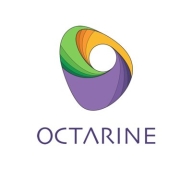

Prisma Cloud and Octarine compete in cloud security management. Prisma Cloud appears to have the upper hand with broader integration capabilities and more extensive coverage.
Features: Prisma Cloud provides a multi-cloud approach with compliance, threat detection, and vulnerability management. Octarine focuses on container monitoring, network policy enforcement, and runtime security capabilities.
Ease of Deployment and Customer Service: Prisma Cloud supports a wide range of cloud environments with robust customer service. Octarine offers easy integration into containerized applications but may have limited support for diverse platforms. Prisma Cloud’s flexible deployment model suits diverse infrastructures.
Pricing and ROI: Prisma Cloud has a higher setup cost due to its extensive features, delivering strong ROI through comprehensive solutions. Octarine offers a cost-effective option focused on container security, appealing to businesses with container-centric operations.
| Product | Market Share (%) |
|---|---|
| Prisma Cloud by Palo Alto Networks | 9.0% |
| Octarine | 0.1% |
| Other | 90.9% |
| Company Size | Count |
|---|---|
| Small Business | 36 |
| Midsize Enterprise | 22 |
| Large Enterprise | 56 |
Octarine is the most comprehensive security platform for the complete lifecycle of
Kubernetes applications. It’s the only platform you need to instantly operationalize
DevSecOps, delivering continuous cloud native security and compliance for multi-tenant, multi-cluster Kubernetes workloads from Layers 4-7.
Prisma Cloud by Palo Alto Networks provides comprehensive cloud-native security solutions. It covers dynamic workload identity, automated forensics, and multi-cloud protection, ensuring robust security across diverse cloud platforms.
Prisma Cloud delivers advanced capabilities for managing cloud security across AWS, Azure, and GCP platforms. It offers dynamic workload identity creation, real-time monitoring, and seamless integration into CI/CD pipelines. With automation, centralized dashboards, and enhanced visibility, users effectively manage security misconfigurations and vulnerabilities. While optimizing cloud environments through runtime protection and compliance, Prisma Cloud faces challenges with its navigation, pricing, and limited automation capabilities. Users seek improvements in API security, role-based access controls, and documentation quality, emphasizing the need for enhanced customization and reporting features.
What are the important features of Prisma Cloud?
What benefits or ROI should users consider in reviews?
Industries like finance and telecom rely on Prisma Cloud for managing cloud security posture and container security. Teams utilize its capabilities across hybrid and multi-cloud settings to ensure compliance and robust threat protection. Features like misconfiguration detection and runtime monitoring are critical in promoting security objectives in these sectors.
We monitor all Container Security reviews to prevent fraudulent reviews and keep review quality high. We do not post reviews by company employees or direct competitors. We validate each review for authenticity via cross-reference with LinkedIn, and personal follow-up with the reviewer when necessary.